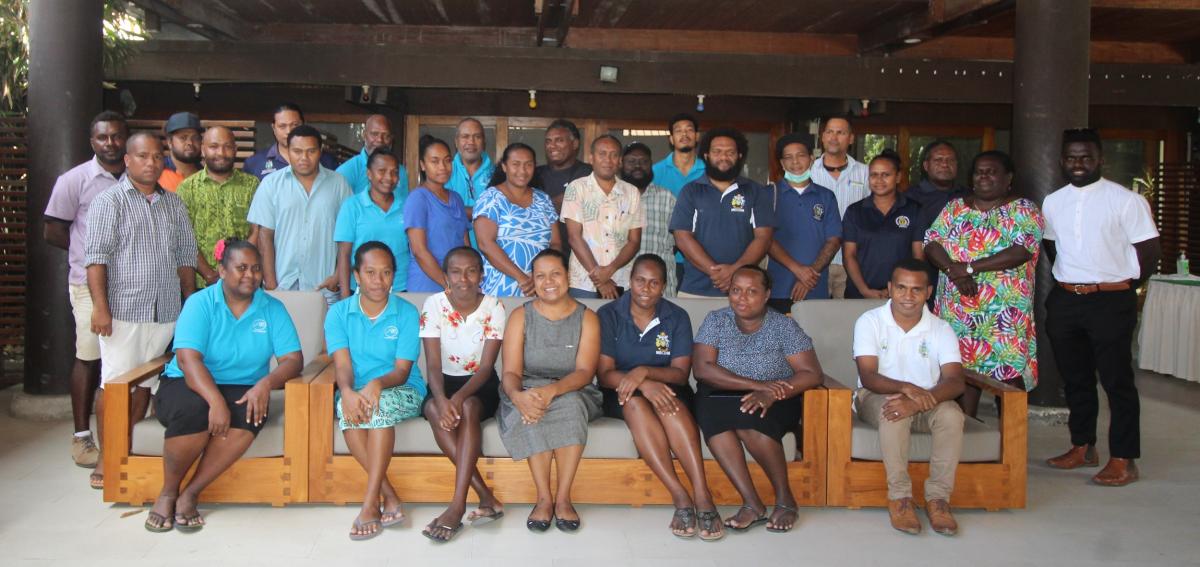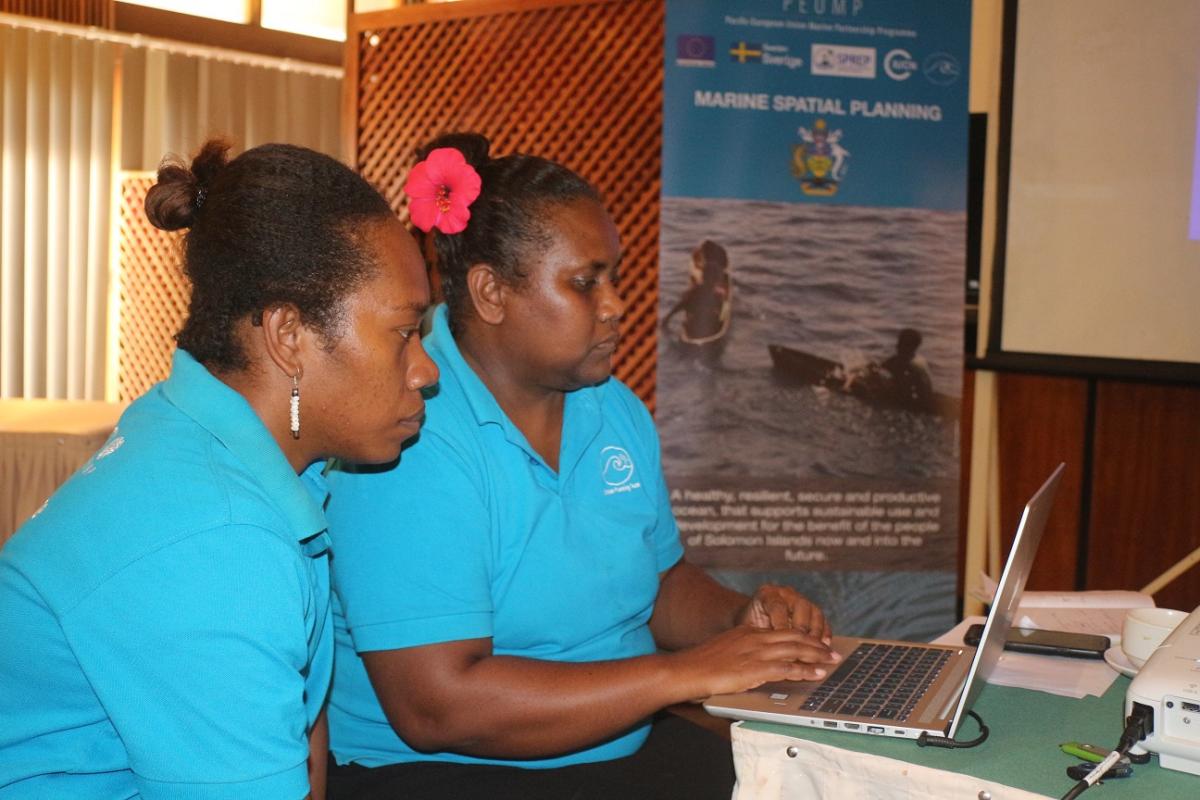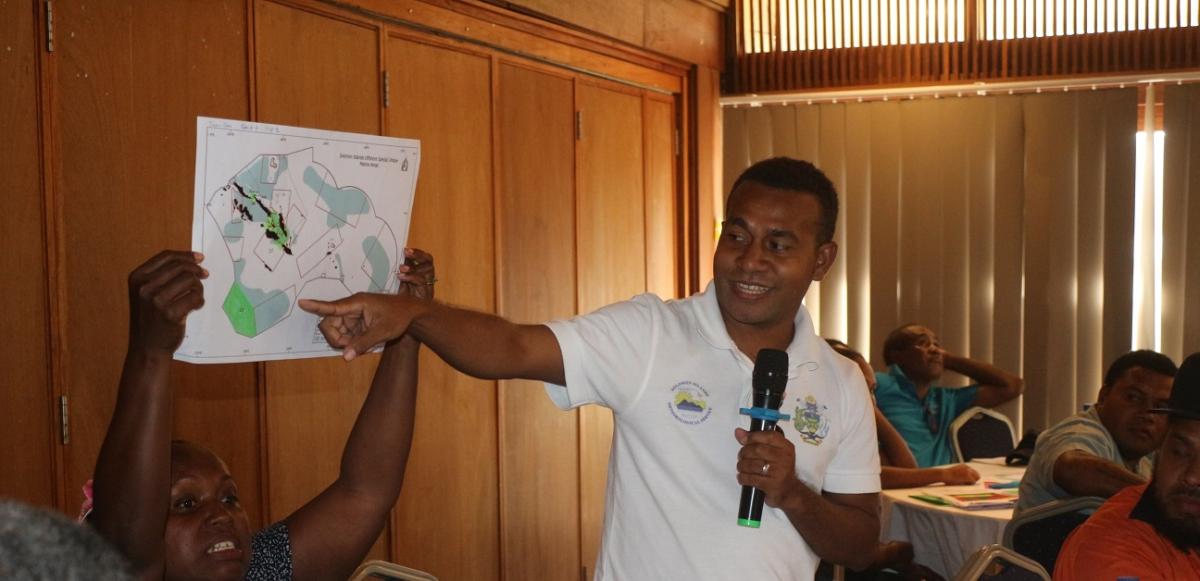Experts gather to review first “zero-draft” marine spatial plan for Solomon Island ocean spaces
Thirty national experts in the Solomon Islands gathered for a two- day workshop to review the first-ever zero-draft marine spatial plan for the Solomon Islands. The zero-draft map was produced by IUCN following a series of technical Geographical Information System (GIS) and prioritisation analysis with the inclusion of data from national and community consultations and input from experts over the last three years.
Following the outcome of the first rounds of consultations held in 2019, a draft marine spatial plan was also developed. The key objective of this workshop is to review the refined but still “Zero” draft of a map of candidate Ocean Zones for the Solomon Islands and to prepare an acceptable draft map of candidate Ocean Zones. This refined map will be used as a basis for the second round of national marine spatial planning consultations.
The Marine Spatial Planning (MSP) process is a key component of the Solomon Islands National Ocean Policy (SINOP). Developed by the Ocean 12 through a cross-sectoral approach, and was completed and launched in 2018. The Ocean 12 is a 12-member intergovernmental body comprising of representatives from twelve key ministries that are actively involved in discussing key priorities for effective ocean management and ocean affairs in the Solomon Islands.
“This phase is the next exciting yet challenging milestone for the MSP work for us. At this workshop, we will bring together a diverse group of experts, practitioners and partners to help guide and build on the Zero Draft Marine Spatial Plan before our Ocean Planning Team conducts the second nation-wide consultations with communities, ocean sectors both public and private, NGOs, CBOs and individuals. We hope to have an agreed blueprint of the ocean plan for the consultations after this week”, said Ms Agnetha Vave-Karamui, Co-chair of the MSP Programme at the Ministry of Environment, Climate Change, Disaster Management and Meteorology in Solomon Islands.
The objective of MSP in the Solomon Islands is to balance sustainable social, environmental and economic uses and benefits to achieve a secure, resilient and healthy ocean that benefits the people now and into the future. In order to capture and conduct the MSP, the Solomon Islands government conducted an intensive nationwide consultation involving all relevant stakeholders. The Ministry of Fisheries and Marine Resources (MFMR) and Ministry of Environment, Climate Change, Disaster Management & Meteorology (MECDM) were tasked to lead the MSP process to develop an Ocean Plan or the MSP for the entire Exclusive Economic Zone of Solomon Islands.
“IUCN would like to acknowledge the efforts by Oceans 12 and national experts in the Solomon Islands in progressing the Marine Spatial Planning (MSP) component of the Solomon Islands National Ocean Policy (SINOP) to a stage that it can now go out for a second round of national consultations. It is important that these consultations be inclusive and the end product owned by all Solomon Islands stakeholders. IUCN stands ready to continue to work with our colleagues in the Solomon Islands and we look forward to the successful completion of these national consultations in the coming weeks”, said Mr Mason Smith, Regional Director of IUCN Oceania.
A planning meeting and training for the consultation teams that will be implementing the work on the ground will be held over the next two days on 16 and 17 September.
The work carried out by IUCN is funded by the European Union (EU) through a grant agreement with SPREP as part of the By-catch and Integrated Ecosystem Management (BIEM) Initiative, a component of the Pacific-European Union Marine Partnership (PEUMP) Programme. PEUMP addresses some of the most serious challenges faced by the region. Among these are the increasing depletion of fisheries resources and associated by-catch and habitat impacts; the threats to marine biodiversity, including negative impacts of climate change and disasters; and the need to mainstream a rights-based approach and to promote greater recognition of gender issues within the sector.
The PEUMP is a five-year programme funded by the European Union (EUR 35 million) with additional targeted support from the government of Sweden (EUR 10 million). The programme provides direct assistance through regional organisations to support regional and national level activities in the Pacific.



